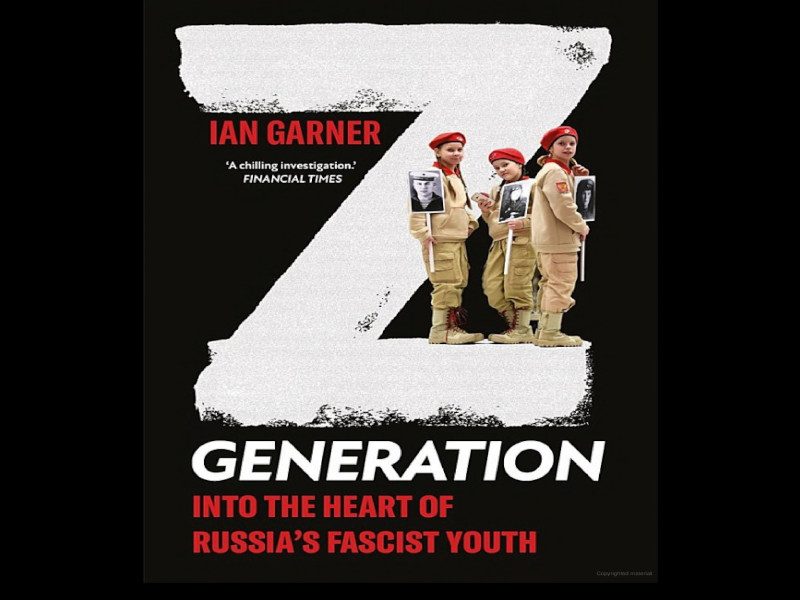The War of Narratives: The Greatest Battle of Our Time (Pinned)
How Authoritarians and Fantasists Capture Minds—And How We Can Break Their Spell

Z Generation: Into the Heart of Russia’s Fascist Youth. Dr. Ian Garner
Listen to this article.
The greatest battles of our time are not fought with tanks or missiles but with stories. Narratives—about who we are, what we value, and where we are going—shape the destiny of people and nations.
There are three kinds of narratives:
- Beneficial narratives, which promote truth, cooperation, and human dignity.
- Toxic narratives, which manipulate fear and consolidate power.
- Delusional narratives, which offer simplistic or fantastical escapes from reality.
Which of these prevails will decide the future of democracy—and of freedom itself.
How Narratives Capture Minds
As Blair Warren once observed:
“People will do anything for those who encourage their dreams, justify their failures, allay their fears, confirm their suspicions, and help them throw rocks at their enemies.”
This is why authoritarians and fantasists are winning: they tell stories that speak to people’s deepest fears and desires—even if those stories are built on lies.
Toxic Lessons from History
History offers grim reminders of what happens when a toxic narrative goes unchallenged until it is too late:
- Germany, pre–World War II: Few Germans recognized the propaganda war until Adolf Hitler had secured total power.
- Russia, pre-revolution: Most Russians failed to grasp the ideological battle until the Bolsheviks had seized control.
- United States, 2016: Many Americans underestimated the narrative struggle until the 2016 election brought Donald Trump to power.
- Post-Communist Russia: Few Russians recognized how the failed Soviet narrative was revived in a new form, paving the way for renewed subjugation, corruption, and oppression.
Even today, Putin’s propaganda sustains his war in Ukraine by convincing millions that invasion is defense, oppression is patriotism, and power is divine right.
The Rise of the Delusional
At the same time, delusional narratives tempt the disillusioned. Movements like the Sovereign Citizens reject taxes, laws, and social obligations, imagining freedom without responsibility. Tech-utopians dream of “network states” or Trump’s “Freedom Cities,” offering futuristic fantasies as shortcuts around the hard work of repairing real societies.
Both kinds of stories—fear-driven and fantasy-driven—pull people away from truth, responsibility, and cooperation. Left unchecked, they lead to what history shows again and again: collective madness—often ending in violence. The catastrophic world wars of the 20th century bear witness to this truth.
Indoctrination in Real Time
As Dr. Ian Garner, author of Z Generation: Into the Heart of Russia’s Fascist Youth, explains:
“Wartime Russia is drowning in fascist symbols. Zealous patriots attack journalists, opposition activists, and anyone suspected of betraying the motherland… This is Russia in the 2020s: a land of performative rage and nationalist untruth, where pretense has become the norm, and a terrifying, apocalyptic mindset is seizing the Russians of tomorrow.”
Youth groups are the heart of the Kremlin’s nation-building project. There are now 1.3 million members of the “youth army.” Children are taught to use Kalashnikov rifles, compete in patriotic contests, and—most dangerously of all—believe that being a “good Russian” means being willing to die for the state.
The echoes are chilling: Hitler’s Brownshirts, Communist Russia’s Young Pioneers, and Mao’s Red Guards. Indoctrination is not history—it is happening now.
Breaking the Spell
The good news is that destructive narratives can be countered—not with force, but with better stories. The internet gives us the tools to spread narratives of hope, dignity, and peace faster than lies—if we choose to use it.
One such story is the Freedom Declaration for Peace, part of Project Open Democracy. It is designed to replace fear with vision, to hollow out support for tyrants, and to remind people everywhere that cooperation and justice are stronger foundations than scapegoating, rage and delusion.
It offers a counter-narrative that can:
- End the threat to Ukraine by eroding Putin’s domestic support with a counter-narrative exposing the lies and human cost of his ambitions.
- End the suffering of Palestinians by undermining Netanyahu’s political standing and presenting Israelis with a vision of security grounded in peace, not endless retaliation.
- Preserve democracy in the United States by loosening Trump’s hold over millions, offering an alternative that speaks to hopes without exploiting fears.
- Expose the hypocrisy of religious leaders who betray their own faith by enabling totalitarians.
- Counter the escapism of Sovereign Citizens, Network State advocates, and techno-fantasists.
- Reform the Industrial Age economic system to better suit the needs of a global, information-driven society, including the creation of a Global Social Capital Fund.
- Expand the role and reach of the International Criminal Court. This will send an unmistakable message to convicted leaders, their acolytes, and enablers: you are on notice. None of you are beyond accountability—justice is coming, and it will be swift.
The Choice Before Us
History shows what happens when toxic and delusional narratives are left to grow: they harden into myths that can dominate nations for decades. But it also shows that healthier, truthful stories can inspire movements powerful enough to defeat tyranny and open new chapters of freedom.
As Antonio Gramsci wrote in another time of upheaval:
“The old world is dying and the new world struggles to be born. Now is the time of monsters.”
You can help ensure our “time of monsters” is short-lived by signing the Freedom Declaration for Peace and sharing the message of The Great Signing with everyone you know.
Sign. Share. Spread. The war of narratives is ours to win—but only if we act now.


